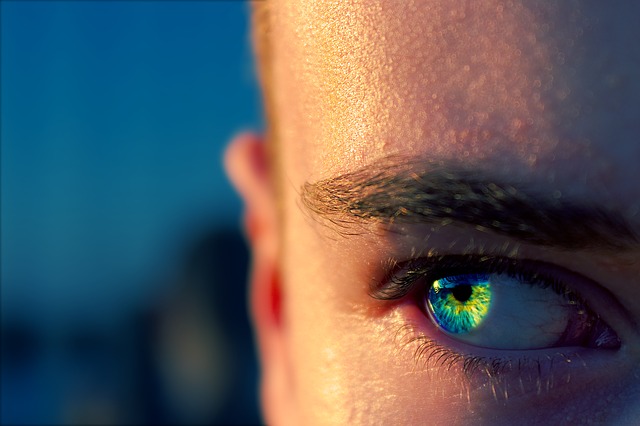* [Excerpts from a Lecture]
.أَلَمْ تَرَ أَنَّ اللَّهَ يَعْلَمُ مَا فِي السَّمَاوَاتِ وَمَا فِي الْأَرْضِ مَا يَكُونُ مِن نَّجْوَى ثَلَاثَةٍ إِلَّا هُوَ رَابِعُهُمْ وَلَا خَمْسَةٍ إِلَّا هُوَ سَادِسُهُمْ وَلَا أَدْنَى مِن ذَلِكَ وَلَا أَكْثَرَ إِلَّا هُوَ مَعَهُمْ أَيْنَ مَا كَانُوا ثُمَّ يُنَبِّئُهُم بِمَا عَمِلُوا يَوْمَ الْقِيَامَةِ إِنَّ اللَّهَ بِكُلِّ شَيْءٍ عَلِيمٌ
Do you not see that Allah knows whatever there is in the heavens and whatever there is in the earth? There is no secret talk among three, but He is their fourth [companion], nor among five but He is their sixth, nor less than that, nor more, but He is with them wherever they may be. Then He will inform them about what they have done on the Day of Resurrection. Indeed Allah has knowledge of all things. [Surah al-Mujadalah: Verse 7]

What is Haya‘?
Those that have a healthy nature and fitrah are covered with haya’, and are careful of everything they do or say, out of being shy from Almighty God, the Lord of the worlds.
But what is Haya’, and why is it important? What are its kinds, and how can Islam preserve a person’s haya’?
Haya’ is derived from the word hayat which is the Arabic word for “life”, and it means the avoiding of evil traits. Another definition says: “It is that Allah does not find you absent where He has commanded you, nor does he find you present where He has prohibited you.” This term covers a wide number of concepts. In English, it may be translated as modesty, shyness, self-respect, bashfulness, shame, honour, humility, etc. So when we say that such a person has Haya’, it really means that with every throb of the life inside him/her, they have abstained from obscenities and sins. That’s why there’s a firm relation between having haya’ and between having a heart that’s beating with life.
Some Important Verses and Narrations:
أَلَمْ يَعْلَمْ بِأَنَّ اللَّهَ يَرَى
Does he not know that Allah sees? [Surah al-‘Alaq: verse 14]
إِنَّ اللَّهَ كَانَ عَلَيْكُمْ رَقِيباً
Surely Allah ever watches over you. [Surah al-Nisa: verse 1]
يَعْلَمُ خَائِنَةَ الأَعْيُنِ وَمَا تُخْفِي الصُّدُورُ
He knows the stealthy looks and that which the breasts conceal. [Surah Ghafir: verse 19]
قال النبي (صلى الله عليه وآله وسلم): إن الله حيي ستير يحب الحياء والتستر.
The Holy Prophet (s.a.w.) states: “Verily Allah is Hayiy (ever-living) and Sateer (He who covers up His worshipper’s faults) and He loves haya‘ (modesty) and tasattur (covering up)
قال النبي (صلى الله عليه وآله وسلم): الحياء من الايمان والحياء خير كله.
The Holy Prophet (s.a.w.) states: “Haya’ is from faith and haya’ is goodness in its entirety.”
قال الإمام السجاد (عليه السلام): خَفِ الله لقدرته عليك و استخي منه لقربه منك.
Imam al-Sajjad (a.s.) states: “Fear Allah for His power over you, and be embarrassed from Him because of His proximity to you.”

Different Types of Haya’:
There are four types of haya’:
- Haya’ towards Allah; which is to follow His commands, and stay away from what He has prohibited. A Muslim should feel ashamed to have Allah see them doing – or hear them saying – something that displeases Allah, especially when they are alone and out of the view of others. This is the most supreme degree of haya’. All sins, minor or major, from men or women, children or adults; share one basic feature: having no haya’ from the fact that Allah (s.w.t.) sees you while you’re committing your sin. If you realized constantly that Allah (s.w.t.) sees you, you would never commit any sins.
- Haya’ towards the Angels; as they are noble and dignified creatures who witness the acts performed by humans.
- Haya’ towards people; which is accomplished by not hurting them and not publicly practicing evil and bad acts.
- Haya’ towards oneself; a person should be ashamed of oneself when they performs acts that are shameful. If one notices that their haya’ level is low they can improve it through remembrance of Allah, getting closer to Him, and fearing Him. This is accomplished by ‘iffah (chastity) and being careful at times of khalwah (when one is alone).
Good and Bad Haya’?
Haya’ can also be divided into good and bad:
Good Haya’: A believer should build their personalities and their character with the good dimensions of haya’. If one develops a sense such as this one, it will help the believer to obey all of Allah’s command and to stay away from sins. The stronger this sense of haya’ becomes, the more it motivates one to make sure that Allah (s.w.t.) doesn’t see them doing anything prohibited. The way to develop this haya’ is that one must keep learning and absorbing more knowledge and applying it to their lives.
Another type of good haya’ is more of a social aspect concerning others besides Allah (s.w.t.). Normally these things often come in regard with ones relationship with family. For instance, a child not wanting to do something displeasing to his/her mother, or a wife not wanting to do something displeasing to her husband or even a student who is careful about saying something incorrect in front of their teacher.
Lastly is the type of haya’ in which the believers become shy of themselves. This is when they have reached the peak of their faith. What this means is that if they do, say, or see anything wrong or even commit the tiniest sin, they start to feel extremely bad and embarrassed or they feel extreme guilt in their heart. This builds a high degree of self-consciousness and that is what strengthens the believers’ commitment to Allah (s.w.t.)
Bad Haya’: also known as khajal; is not only against the teachings of our Prophet (s.a.w.) but it is also solid proof of the weakness of someone’s faith. This negative aspect revolves around a person’s shamefulness or shyness of doing something that Allah (s.w.t.) has ordered us to do through the Qur’an or our Prophet’s (s.a.w.) Sunnah. Meaning for someone not to follow an obligation of Islam, due the fact of being shy in front of others about it. This is totally forbidden because then one is giving the people of this dunya more respect than the One who created this whole universe.
Is Haya’ Just For Women?
When we speak about Haya’ we sometimes assume that this matter only concerns women and therefore men have no responsibility in this regard. However, we must understand that Haya’ is equally important for both men and women. Allah (s.w.t.) has told men how to guide their modesty as He has told women how to guide their modesty. If either one of them refuse to follow the commandment of their Lord, the Almighty will reprimand them according to their actions, irrespective of gender. May the Almighty keep us guided on the Right and Straight Path and have mercy on us all.
One of many examples of haya’ for men is keep lust under control, and a man’s natural desires can be regulated without compromising haya’ by getting married at a young age. If that is not feasible, a man must stay modest, avoid sin, observe taqwa and try alternative spiritual exercises, like fasting. There are many verses in the Qur’an that have clearly explained how we have to behave and Allah is All-Knowing; therefore He knew that we would face these problems living in this society, and that is no excuse to change Islam and only practice what we feel is right.![]()
![]()
![]()
Haya’ In Modern Society
Today vulgarity and all its ingredients have become a common place even among well-known Muslims in the zeal of imitating the disbelievers. It is these people who have been struggling to bring Muslim women out of Hijab into immodesty and indecency. They have adopted the lifestyles that exist outside the boundaries of religion. Those who are ignorant of the teachings of the Prophet (s.a.w.) do not concern themselves with haya’ and honour.
Haya’ and Iman (faith) are interdependent; therefore either they both exist together or they both perish. Thus, the Prophet (s.a.w.) has said in one hadith, “When there is no haya’ left, then do as you please.”
Such people face a dilemma. On the one hand, they desire to freely look at the half-clad bodies of the wives and daughters of other Muslims on the streets; and on the other hand, they do not have the courage to deny the teachings of the Holy Qur’an and the Prophet (s.a.w.). Neither can they say they have given up Islam, nor can they bear to see Muslim women wear Hijab and demonstrate haya’. The fact is, indulging in indecency for so long has killed the sense of haya’ which Islam had commanded them to preserve.
Imam Jafar al-Sadiq (a.s.) says: Islamic modesty (haya’) is the symbol of faith and whoever has no modesty (haya’), has no religion.
We often find that shyness, humility and bashfulness is frowned upon by our society as a weakness or a lack of confidence – when in fact – these are quality of a dignified upright human being, who is conscious of their actions and their responsibilities in life.
It is unfortunate that today, and because of the misuse of technology, the great concept of haya’ is threatened. The evildoers are promoting anything that distorts and corrupts haya’ by taking advantage of technological advances. The same thing can be said about the media, which is entertainment oriented. Many aspects of entertainment is taking new destructive directions which negatively affect the concept of haya’ a great deal. If haya’ is distorted, faith can be distorted too.
The chances of committing sins and evil will be higher, and the chances of delaying or neglecting obligations will be higher as well. Even chances of committing crimes will be higher due to these new directions of entertainment, where crime, drug addiction, distrustful conduct and other immoral or irreligious acts are all looked at as means of entertainment.

What Is Our Responsibility?
More instructions and guidelines are needed from media organisers regarding the nature of movies and television. There should also be programs for families that raise awareness about these issues. Muslims should learn, master and use Information Technology (IT) positively to promote what is good and beneficial. By mastering IT they should make deliberate efforts to be in control of it and minimize its negative destructive side such as by designing and producing filtering software.
This great concept of haya’ should be promoted through all possible means and at all levels and by everyone: educators, teachers, lecturers, parents, and preachers. Hence there is greater responsibility for us all to shoulder.
![]()


